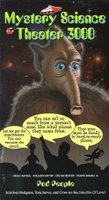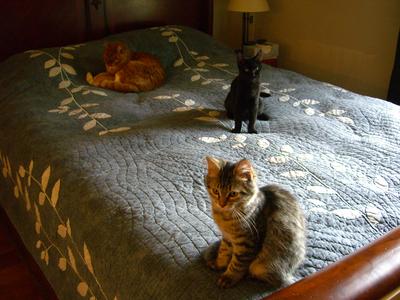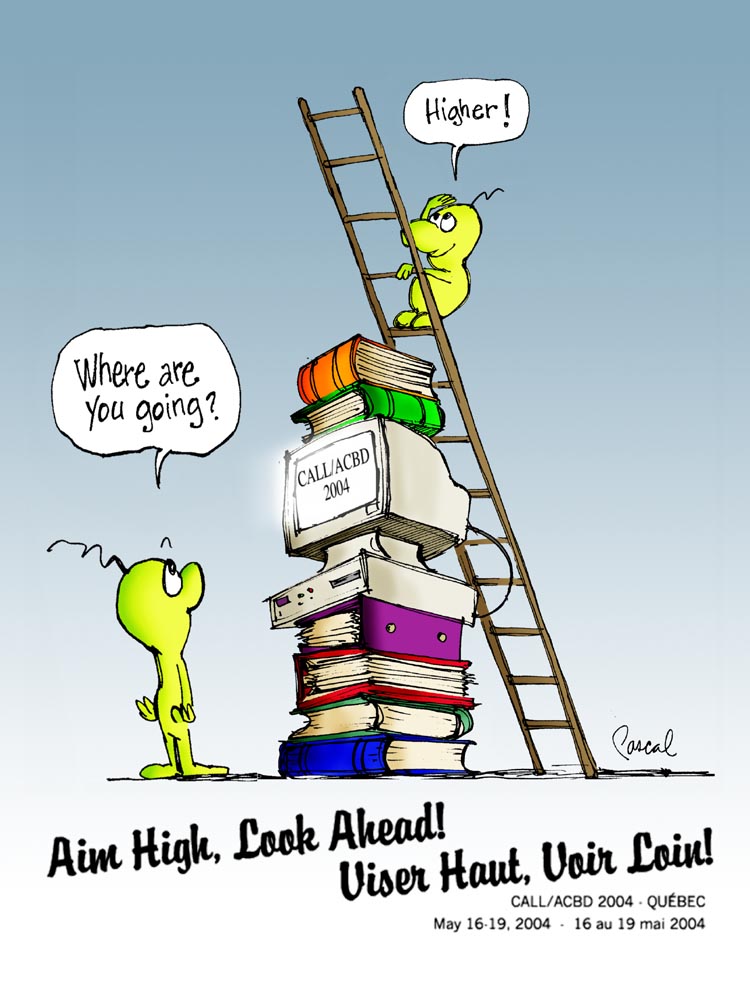More on Job Tips
Bill Logan, in his comment to my original Interview Tips, raises a very thorny question for new librarians. Librarians always want to hire somebody with real library experience, and yet, you have just graduated from library school. This seems very unfair, I agree!
Here are some things you can do to address that problem, although they may not all be as easily accomplished in your situation:
1) Seek out opportunities for graduate assistanceships. While they pay only pittances, at least you are getting some experience under your belt and making some good contacts as well. It probably won't count as much as longer term, full time work experience in a potential employer's eyes, but it's certainly better than a big fat nothing!
2) If possible, try to get a job in a library. I have known many folks who worked part-time or even full-time in non-professional positions in libraries and went to library school. In my opinion, they got far more out of library school than did I, who really had not done more than volunteer or graduate assistanceship before getting half through the master's program. And look at the level of experience they brought to the table when it was time to interview! Many libraries are very supportive of their employees seeking the MLS, and will try to arrange their schedules to accommodate. Of course, this may depend on the position you hold at the library. Keep that in mind, if you take a job that opens or closes the library; they may not be able to give you the flexibility!
3) Even if you can't work in a library, try to volunteer at the kind of library you might be interested in (this is tough with some kinds of libraries, and you may end up at the public library or church or hospital library). Still, look for ways that you can get some experience with how libraries work in the real world. The reason librarians like to hire folks with real-world experience is that library school does not do that good a job getting you ready for how libraries really work. I hope that may be changing, but our experience has been that there is a real learning curve.
4) And get involved in library organizations. You can do this, even if you are geographically isolated, by using listserves. LawLib costs nothing to join, and is a terrific community of law librarians who talk (A LOT) about library issues. If you can get to meetings of library organizations, so much the better. Besides the big national group, AALL, there are many regional groups that belong as chapters to AALL, and a few city groups that are often independent, but still are law library groups. All these groups have discounted memberships and often scholarship programs for student members. Look on the website and see. You don't have to belong to AALL to see the part of the website that offers that kind of information:
Lastly, Bill asks about salary negotiation when told, this is the salary, take it or leave it. I think the person is telling you the truth, and you have to decide whether you can afford to take the salary and you want the job enough to take it. I know it's very unnerving to be job-hunting. You feel like nobody could possibly want to hire you. But statistically, the reality is that there are far more libraries looking for librarians to hire than there are people looking for jobs -- even very new, inexperienced librarians! I live in fear that somebody will leave and I will have to hire. We all feel the same way. And we won't be able to pick and choose about experienced or inexperienced much longer. Pluck up your courage.
One of the most helpful things I was told when I was looking for my first law library job was that I needed to figure out if I could afford to take a job. Wow! That was a new concept. I was the sole breadwinner for my family, and we had to relocate. You have to figure out how much it is going to cost to move (unless your new employer is going to help with that expense, as is sometimes happening!) I also hear that some employers are offering a signing bonus if they really want somebody to come (I don't have that flexibility, and I don't know how many libraries can do this).
But you do need to understand that it costs a deal of money in order to pay your first month's rent, pay to connect the telephone, pay to get your heat and water and electric hooked up, get a washing machine and drier (if they don't come with the apartment, as they don't in some parts of the country), and maybe a refrigerator, too. Then you may have to rent a moving van or maybe hire a mover, maybe buy the boxes, rent a hand-truck. You probably won't get your deposit back on your old apartment until long after you've moved out. You have to buy new groceries (probably peanut butter and bread!). So you have to look at the pay rate and figure if it will cover that moving cost, not just is it enough for your living expenses now. I want to thank right now Susan Kiefer from Hamline University who gave me that talk. I hope it's as useful to others as it was to me. I only regret that I couldn't afford to work for Susan. It probably means some folks can't afford to work for me, either. It's a sad world when people who have a Master's degree and a J.D. can't afford more than peanut butter on their bread!




















